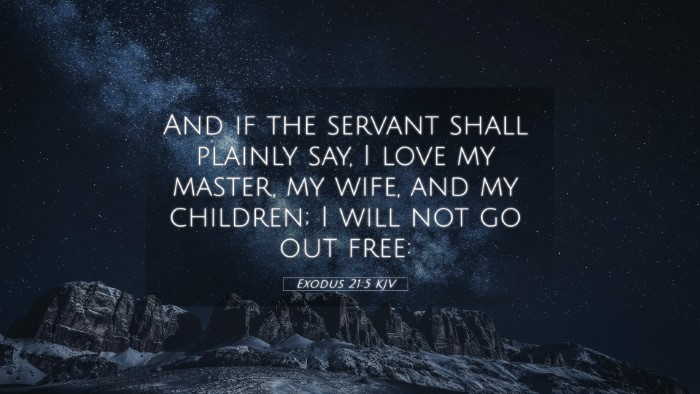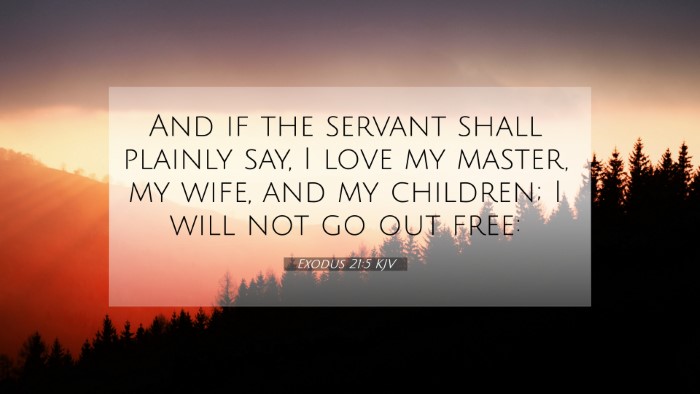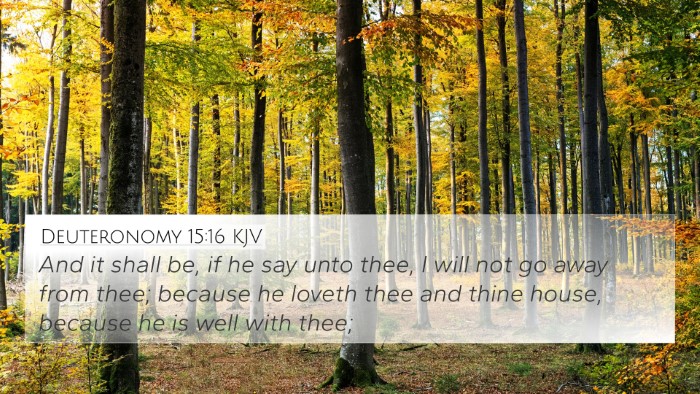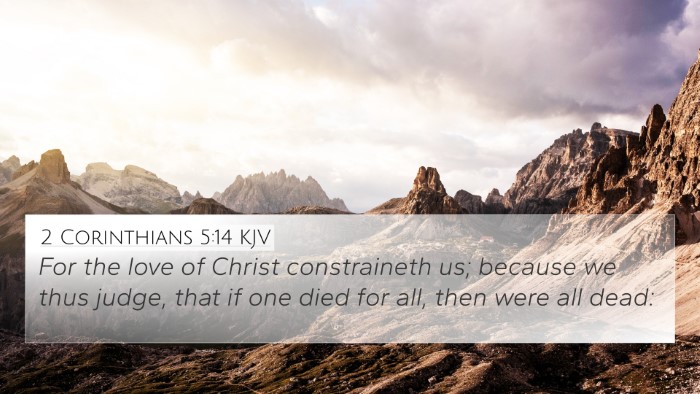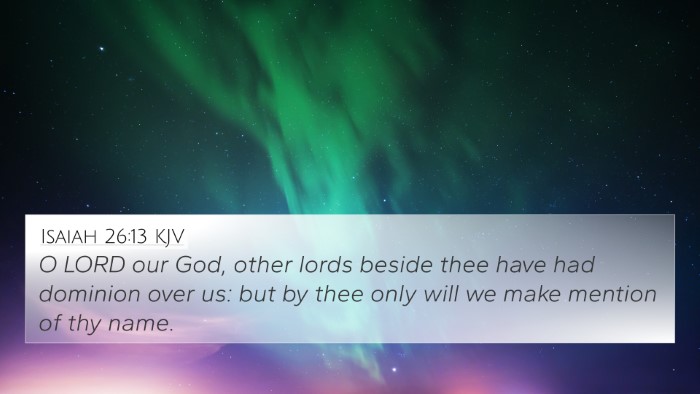Exodus 21:5 - Understanding the Context and Meaning
Exodus 21:5 states: "And if the servant shall plainly say, I love my master, my wife, and my children; I will not go out free." This verse discusses the situation of a servant who has the option to remain with his master if he so desires. The implications of this verse hold deep meaning in understanding servitude, love, and dedication.
Summary of Insights from Public Domain Commentaries
-
Matthew Henry’s Commentary: Henry emphasizes the voluntary aspect of servitude depicted in this verse. A servant declaring his love for his master and family reflects a profound commitment beyond mere obligation. It highlights the theme of choice versus compulsion in servitude, suggesting that love can transcend requirements.
-
Albert Barnes’ Commentary: Barnes notes that this declaration demonstrates the heart of the servant. His choice to remain is indicative of a bond that is not just economic but emotional. This kind of commitment provides insights into the relationships built during servitude and the principles of loyalty.
-
Adam Clarke’s Commentary: Clarke interprets the verse as a significant point of legal and moral understanding, illustrating a transition of servitude from compulsion to personal choice. He further explores the cultural context of servitude during biblical times, suggesting that the servant's decision implies a deep relationship with his household.
Bible Verse Cross-References
Understanding Exodus 21:5 can be enhanced by examining related verses that explore themes of servitude, love, and commitment. Here are several significant cross-references:
- Deuteronomy 15:16-17: Discusses the choice of a servant to stay with his master voluntarily.
- 1 Corinthians 7:21-23: Shares themes of servitude and freedom within a Christian context.
- Matthew 22:37-39: Highlights the love for God and neighbor, showing the connection between master and servant relationship dynamics.
- Ephesians 6:5-7: Servants are instructed to serve with sincerity of heart, which connects with loving one's master.
- Colossians 3:22-24: Encourages workers to serve their masters wholeheartedly, reflecting love in action.
- 1 Timothy 6:1-2: Discusses how bondservants should regard their masters, tying into themes of respect and love.
- John 15:13: References the great love a person can show by laying down their life for others, reminiscent of the commitment of the servant.
Thematic Connections in Biblical Texts
The context of Exodus 21:5 interweaves themes of love, loyalty, and commitment across various scriptures. The narrative establishes a pattern of relationships defined not solely by duty but also by emotional bonds. This is seen throughout both the Old and New Testaments, indicating a universal principle of love that transcends circumstances.
Intertextual Dialogue
By engaging in cross-referencing biblical texts, one can find a rich tapestry of connections between Bible verses. The parallel themes of servitude and love found in Exodus 21:5 resonate throughout scripture, allowing readers to draw upon a deeper understanding of these principles across different contexts.
Integrated Study for Application
Employing Bible cross-reference guides can significantly enhance the study of this verse. It allows readers to identify how to use Bible cross-references effectively to link themes found in Exodus 21:5 with other scriptures. This practice aids in sermon preparation, personal reflection, and a deeper grasp of biblical themes.
Conclusion
Exodus 21:5 encapsulates profound truths about servitude and relationship dynamics. Through insights from recognized commentaries and the exploration of Bible verses that relate to each other, the verse serves not just as a law, but as a reflection on the emotional and spiritual bonds within our commitments. By further studying the cross-references listed above, readers can gain a comprehensive view of the themes of love and loyalty present in biblical text.

